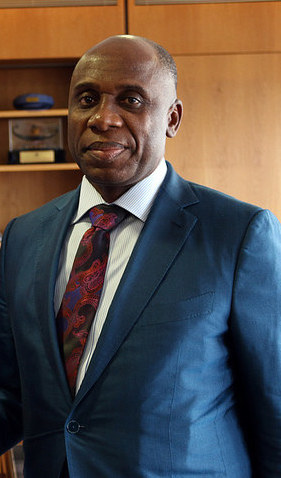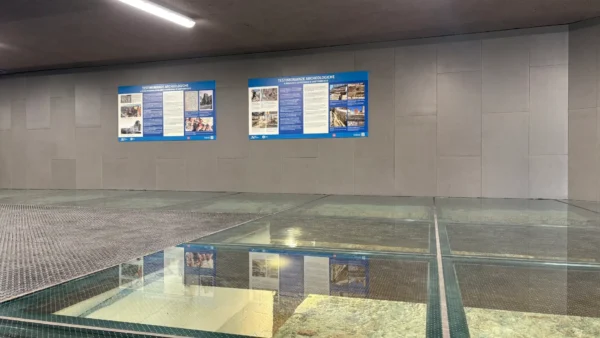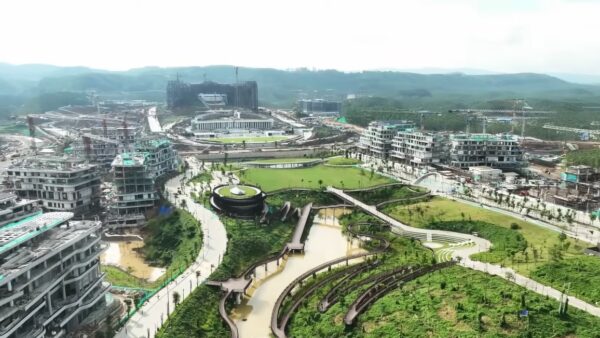A Chinese contractor building a railway in Nigeria got into hot water this week when a local man put forward as an “engineer” could not answer basic questions asked by a senior government official, and nearly got arrested.

Nigerian transport minister Rotimi Amaechi (Wikimedia Commons)
The awkward scene unfolded yesterday when a team lead by Nigerian transport minister Rotimi Amaechi inspected a site of the $1.5bn Lagos-Ibadan standard gauge railway project, being undertaken by China Civil Engineering and Construction Company (CCECC).
Having previously challenged CCECC to employ Nigerian engineers so that they could learn state-of-the-art techniques, Amaechi demanded the list of indigenous engineers now on site.
A “mild drama” ensued when a young man subsequently came forward, introducing himself to the minister as a supervising engineer, reports newspaper, Daily Trust.
Suspicious, the minister asked him if he was qualified, and the man said he was, having graduated with a degree in civil engineering from Nigeria’s Federal University of Technology.
Still not convinced, Amaechi called on his ministry’s director of rail, Alhaji Baba Kobi, to interrogate him.
The Trust reports: “To the consternation of the Minister and other officials in his entourage, he could not explain the ongoing beam construction.”
Angry now, the minister threatened to have him arrested for “lying against his country”, the Trust reported.
But Amaechi turned his ire on CCECC, instructing the contractor to have at least six Nigerian engineers on each of the sites before the next inspection.
“We want to be able to understudy how to construct these beams so that we can do it by ourselves”, said Amaechi.
The project involves building 81 bridges, 207 culverts and 708 beams measuring 32m in length, said the Trust.
The paper contacted the Nigerian Society of Engineers in Lagos, Ogun and Oyo, but the organisation said none of their members is involved in the project, which, it said, goes against the local content policy of the government.
Comments
Comments are closed.











This is definitely a failure of the Nigerian Government. Prior to appointment of contractors on indigenous projects surely a due diligence of the CV’s and qualifications of key project staff should have been undertaken as part of the Tender process.
In fact, the Nigerian Society of Engineers should have been consulted during the Tender process.